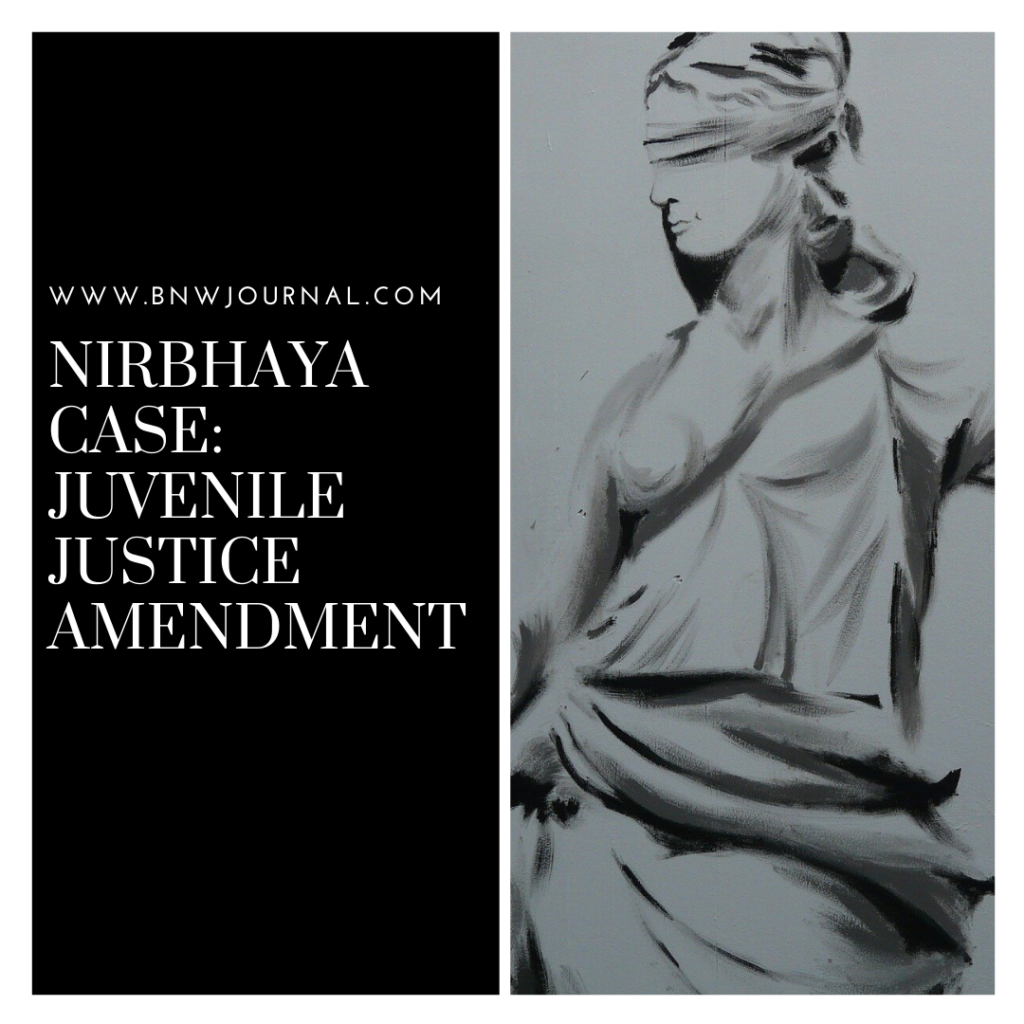![]()
INTRODUCTION
After seven years of battle, the four accused for involvement in the Delhi gang-rape case died by hanging on March 20, 2020 in Tihar Jail. Nirbhaya means “fearless”. Nirbhaya was a 23-year-old girl who fought for her life for 14 days. Unfortunately she died on December 29, 2012. Indian law does not permit the press to publish a rape victim’s real name. Consequently, the media gave the victim the name ‘Nirbhaya’ for her fearlessness.

Her struggle and untimely death is a symbol of women’s resistance to rape around the world. This case is one of the biggest verdicts at the hands of the Supreme Court; and is considerably one of the “rarest of rare” cases in the history of India.
Six people faced accusation for the crime. Out of these six, one committed suicide in Tihar jail during the proceedings. Another one was considered to be a juvenile. The rest were hanged to death. On January 28th, 2013 Juvenile Justice Board (JJB) came to the conclusion that the accused juvenile is considerably a minor under the burden of proof. After a month they framed charges against the minor. JJB convicted the minor for rape and murder. He was awarded with three years of term imprisonment at the probation home case.
Day after the rape case, public protest against the State and Central Government for failing to provide adequate security for women took place in New Delhi. Similar protests took place in other cities also all over the country. This Delhi Gang rape led to many major amendments in the criminal system of India. So, the government of India replaced the Juvenile Justice Act 2000. As an unfortunate happenstance, one of the offenders in the case was a few months short to 18 years. The changes that took place were a consequence of this.
VIOLATION OF U.N CONVENTION AND JUVENILE JUSTICE ACT
The United Nations Convention on child rights defines ‘child’ as any human being under the age of eighteen years; and therefore forbids any capital punishment imposed on them. But this case increased the public pressure which led to the amendment of Juvenile Justice (care and protection of children) Act, 2015. It proposes the fair trial of juveniles under the age of 16 to 18 years of age with involvement in any heinous crimes. The adolescences under the age of fourteen to seventeen years are not mature enough for treatment as an adult. But this new juvenile act reduces the age of juveniles treating their act as high risk under IPC.
Now if any heinous crime such as- rape and murder is done in the age between sixteen to eighteen years then that child is no more be treated as adolescence. He is considerably an adult but only after the measurement of his/her mental maturity. Now the punishment for any heinous crime done by a child between the age of sixteen to eighteen years of age will have imprisonment for at least seven years or more.
Article 20 (1) of the Constitution of India provides protection from Ex-post facto law; which means if you make any offense in present then punishment is as per to the current laws; and if laws change in future then the punishment remains unaffected. This is the biggest reason why the juvenile under the Nirbhaya case got three years of imprisonment and could not be extended. So, in the case of Mohammad Afroz (juvenile under the Nirbhaya rape) crime won.
Conclusion
In conclusion, finally Nirbhaya got justice through the hanging of all the four accused. But there is still something that is missing in our country laws that causes the delays in the final verdict. There are several cases of rape that are still pending. As per this case proper justice has not been given to that 23 years old girl until today, because that juvenile has also done that crime. He was mature enough to understand those things. But as per our laws, after an amendment of a particular act in the present date, no person will be punished for past crimes and so the fifth accused got 3 years of punishment. India is at the fourth rank in committing rapes and it can only be brought down when there will be no delays in the final verdict of such heinous offenses.



1 Comment
Aprajita Salooja · 02/05/2020 at 4:40 PM
Very good topic Amendment in act was requirement of time.